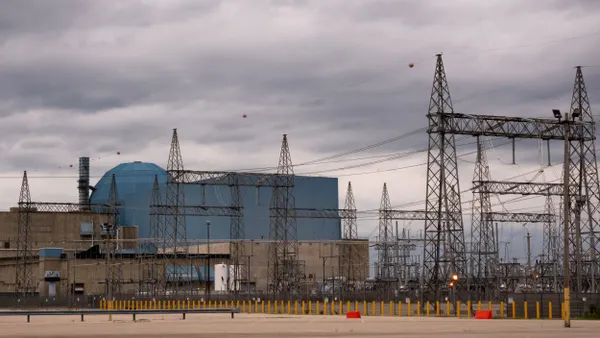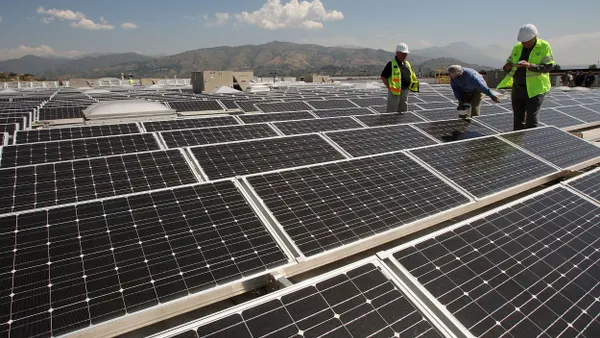Dive Brief:
- Apple said Tuesday that it is urging suppliers to vastly reduce greenhouse gas emissions as the tech giant works to make its entire supply chain carbon neutral by 2030.
- The company is asking manufacturers to decarbonize Apple-related operations by taking steps such as running on 100% renewable electricity. Apple will track progress through yearly audits.
- As part of the company’s sustainability goals, Apple also announced plans to construct large-scale solar and wind projects in Europe with projects ranging between 30 and 300 megawatts. The goal of the projects is to produce enough renewable energy to power all devices on the continent with low-carbon electricity.
Dive Insight:
Apple is looking to reduce emissions in every aspect of its supply chain, from manufacturing to consumer end-use.
It’s requiring suppliers to report on progress toward emissions reductions related to Apple production and says it will track and audit annual progress.
More than 200 of Apple’s suppliers, representing more than 70% of the company’s direct manufacturing spend, have committed to using using wind, solar or other forms of clean energy for production of the tech giant’s projects. Multiple major suppliers, including Apple’s chip vendor Taiwan Semiconductor Manufacturing Co., pledged to power 100% of Apple production with renewable energy.
Beyond reducing the emissions of their suppliers, Apple is also working to address the 25% of its emissions it says are unavoidable while using existing technologies. The company is investing in three forestry projects that are expected to remove 1 million metric tons of carbon dioxide from the atmosphere in 2025.
“Fighting climate change remains one of Apple’s most urgent priorities, and moments like this put action to those words,” Apple CEO Tim Cook said in a statement. “We’re looking forward to continued partnership with our suppliers to make Apple’s supply chain carbon neutral by 2030.”
Many companies have been slow to address their supplier emissions, which typically make up the bulk of their carbon footprint. A Boston Consulting Group survey of more than 1,600 organizations released last week found that only 10% of companies are comprehensively measuring their emissions, up from 9% in 2021.
















